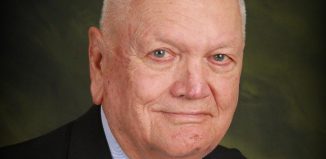Between You and Me: Summertime and something to think about
By Leah S. Dunaief

Schools are out, or almost out, trees are lush with leaves, people are beginning to wear shorts and sandals, and the temperatures are finally approaching the high 80s. It seems to have stopped raining. The lines after dinner at ice cream parlors stretch out the door and down the street. Dogs have their tongues hanging out when being walked. And it’s light until almost 9 p.m. Summer, glorious summer, has truly arrived.
It has been many years since my children enjoyed summer break from school’s routine and therefore I with them. Yet the feeling of relaxation that summer ushers in still floods my being. This is the time to make a barbecue and invite friends, enjoy the summer sky over some nice port in the long evening, lounge in the backyard, splash at the beach, watch a baseball game, sleep in a bit and read, read, read those books and magazines that have piled up on the bedside table all year long. It’s also the time to sail, swim, play, get lost on long walks and, in so many other ways, rejoice in the outdoors. There is even time to think.
Here is something tantalizing to think about. A letter published on the website Medium.com Monday, written and signed by a group of 18 billionaires, from 11 families, including financier George Soros, co-founder of Facebook Chris Hughes, Abigail Disney and heirs to the Pritzker fortune, Liesel and Ian Simmons, urged government to tax them at a higher rate. They called for “a moderate wealth tax on the fortunes of the richest one-tenth of the richest 1 percent of Americans — on us.”
Over the last three decades, the wealth of the top 1 percent grew by $21 trillion. Who can even visualize such sums? But the wealth of the bottom 50 percent fell by $900 billion — not hard to visualize by comparison because we can see the effects on American lives.
The letter follows a similar declaration by investment guru Warren Buffett in 2011 encouraging greater tax on the richest. He revealed that his effective tax rate was actually lower than that of any other 20 people in his office.
The richest pay 3.2 percent of their wealth in taxes versus 7.2 percent from the bottom 99 percent. President Barack Obama (D) picked up the suggestion at the time and called for a 30 percent tax for that population, dubbing it the “Buffett rule.” Not only was that never enacted, the latest round of tax cuts under President Donald Trump (R) have particularly helped those same richest Americans.
The Monday letter was addressed to all presidential contenders. Elizabeth Warren, U.S. senator from Massachusetts and Democratic hopeful, has proposed a comparable strategy, recommending that those who have $50 million or more in assets, like stocks, bonds, yachts, cars and art, be subject to a wealth tax. That would include some 75,000 families and raise, in her estimation, $2.75 trillion over the next 10 years. That money could be put toward better child care, helping with education debt and the opioid and climate crises. Such a tax would strengthen American freedom and democracy and would be patriotic, it is claimed. Surveys show that about seven out of 10 people support this concept.
In 2014 Nick Hanauer, a successful Seattle entrepreneur, wrote a memo to “my fellow zillionaires” in which he advised the following: “[We are] thriving beyond dreams of any plutocrats in history, [while] the rest of the country — the 99.99 percent — is lagging far behind. If we don’t do something to fix the glaring inequities in this economy, the pitchforks are going to come for us.”
How is that for some heady stuff to occupy the mind and lessen any lazy guilt as our bodies are stretched out on the lounge?







